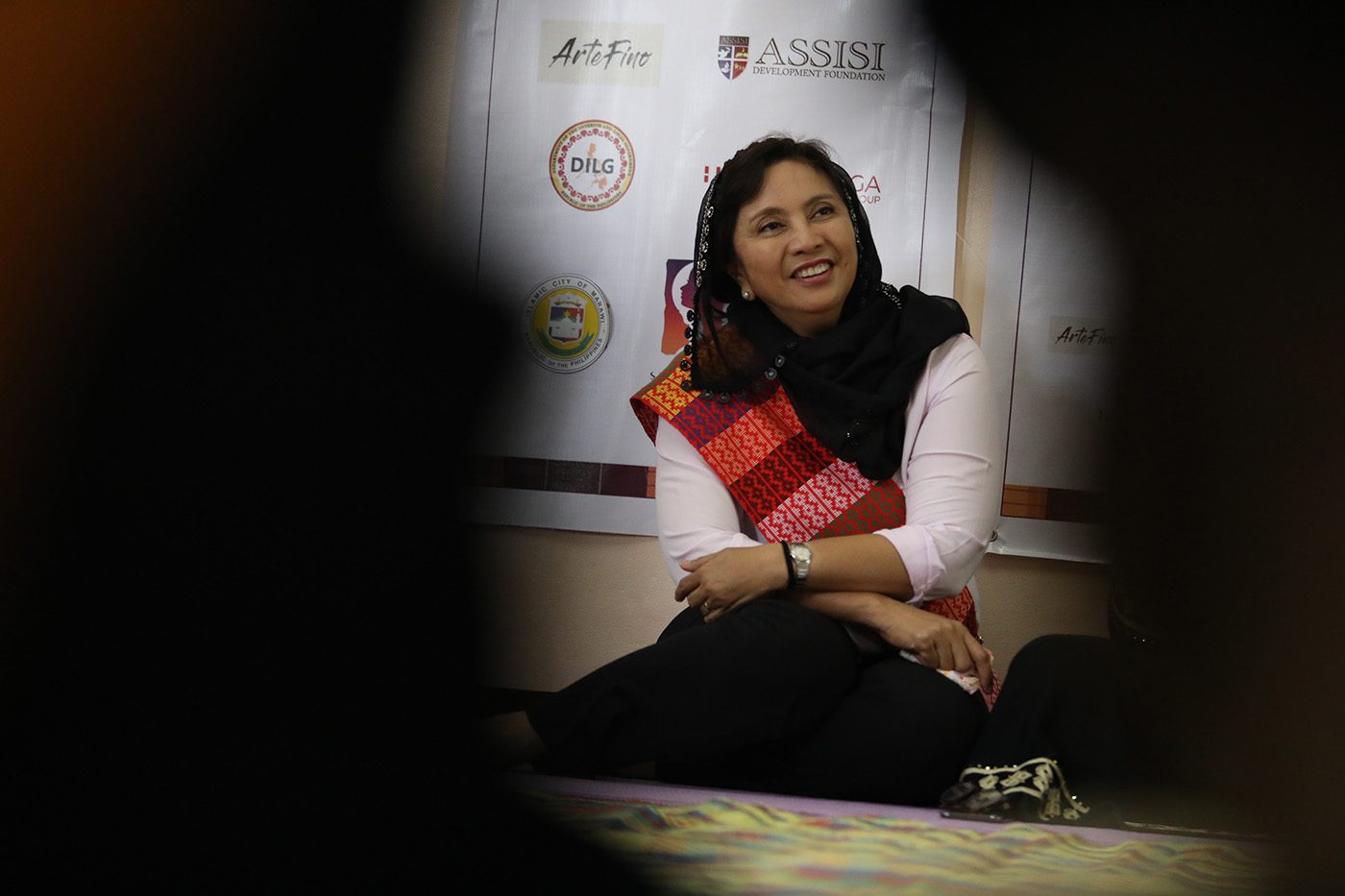SUMMARY
This is AI generated summarization, which may have errors. For context, always refer to the full article.

MANILA, Philippines – Vice President Leni Robredo said the linkages among Muslim Filipinos were “strengthened” as they endured the coronavirus pandemic during the fasting month of Ramadan.
This was Robredo’s message on Sunday, May 24, during the celebration of Eid’l Fitr or the end of Ramadan, a month of fasting when Muslims are prohibited from eating or even drinking water from sunrise to sunset as they exercise patience and self-control.
Ramadan is traditionally celebrated with mosque prayers, family feasts, and shopping for the family, but Robredo said families and friends were forced to spend time apart to help quell the rising number of COVID-19 cases. (READ: Socially-distanced Ramadan; Eid’l Fitr under quarantine)
“Despite this, we see the many ways that Eid’l Fitr and the past holy month of Ramadan strengthened the linkages among Muslim Filipinos,” the Vice President said.
“We see it in friends reaching out and checking on each other online during fasting; in Muslim business owners extending compassion to their staff; in leaders who advocate peace and put their constituents front and center in their agenda,” she added.
She then asked all Filipinos, regardless of religion, to “embody the spirit” of Eidl’l Fitr.
“May we realize that the many threads of our beliefs ultimately weave into the collective fabric of Filipino identity. May we all live in adherence to Eid’l Fitr’s message of inclusiveness and communal responsibility,” Robredo said.
This year’s Eid’l Fitr came just a day after the 3rd anniversary of the Marawi siege, where government troops clashed with homegrown terrorists in a months-long war that destroyed the city. (READ: Marawi, 3 years on: 120,000 still displaced, now vulnerable to COVID-19)
Robredo earlier called on the Duterte government to end “3 years of inaction and neglect in Marawi,” which continues to be in ruins to this day.
COVID-19 should ‘never overshadow’ Marawi rehab
In a separate statement, Senator Risa Hontiveros said the COVID-19 pandemic has made the displacement of Marawi residents “even more powerful.”
“Washing hands, social distancing, staying healthy, and earning income despite everything are especially heavy when you have not even been given the opportunity to properly recover economically, socially, and psychologically from the trauma and pain of a bloody war,” she said.
Hontiveros said the government should do more so displaced residents could finally rebuild their lives in Marawi.
“COVID-19 will prolong, but should never overshadow this. Karapat-dapat lang na maramdamang muli ng mga anak at kababaihan ng Marawi ang kaligtasan sa kanilang tinubuang-lupa (The children and women of Marawi should once again feel safe in their homeland),” she said.
Presidential Peace Adviser Carlito Galvez, who is also now chief implementer of National Task Force COVID-19, assured Maranaos that the government will continue providing for their needs during the pandemic.
“Tandaan po natin na ang laban na ito ay hindi lamang upang pangalagaan ang ating kalusugan at itaguyod ang ating mga kabuhayan, ngunit para din panatilihin ang kapayapaan at katahimikan sa ating mga komunidad,” Galvez said.
(Let us remember that this is not just a fight for health and well-being, but also to maintain peace and order in our communities.)
The Marawi siege, which started on May 23, 2017, led to the imposition of martial law in Mindanao until December 31, 2019, supposedly to aid in the rehabilitation efforts.
But data from the Mindanao Displacement Dashboard of the United Nations High Commissioner for Refugees showed 5,355 families or 126,775 individuals are still displaced in various parts of Lanao del Sur province and Marawi as of April 2020.
Adding to residents’ concerns are plans to set up a military camp in Marawi, which local officials are also opposed to.
Task Force Bangon Marawi had promised in March 2019 that the city’s displaced residents would be able to return home by September 2019. – Rappler.com
Add a comment
How does this make you feel?
There are no comments yet. Add your comment to start the conversation.